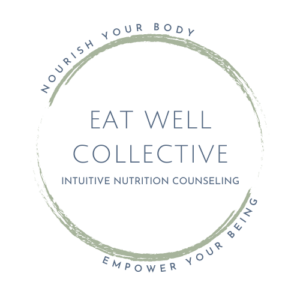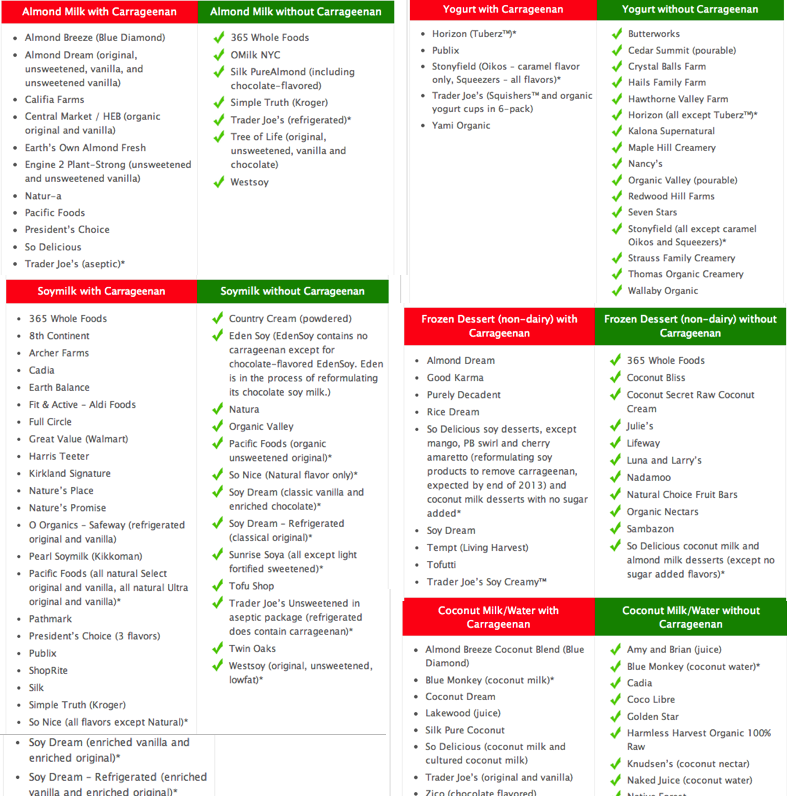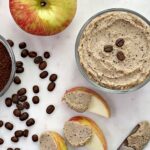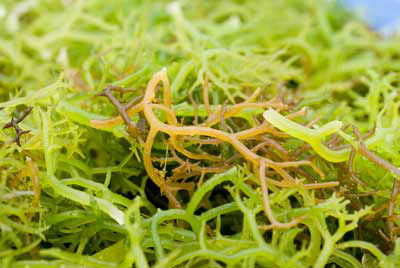
CARRAGEENAN, a commonly used food additive, is an indigestible polysaccharide that is extracted from red algae, and is most commonly used in food as a thickener or stabilizer. Although derived from a natural source, carrageenan appears to be particularly destructive to the digestive system, triggering an immune response causing inflammation, gut irritation, lesions, and even cancer.
Why Is Carrageenan In My Food?
Carrageenan, which has no nutritional value, has been used as a thickener and emulsifier to improve the texture of ice cream, yogurt, cottage cheese, soy milk and other processed foods.
Carrageenan is used by the food industry as a vegan alternative to gelatin to gell, thicken and stabilize items like vegetarian hot dogs, non-dairy yogurts, salad dressings and sauces.
It is often added to beverages to keep their ingredients from separating. You will find carrageenan in many nutritional shakes, milk products, and milk replacements.
In a past post, What’s In Your Greek Yogurt?, I outlined which Greek yogurts contained carrageenan, as well as other additives.
You may also find this additive hiding in some frozen dinners, soups, and commercial broth products.
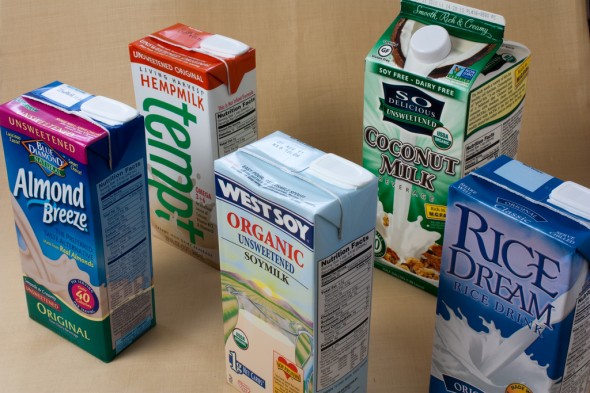
What Foods Commonly Contain It?
Chocolate milk
Ice cream
Sour cream
Cottage cheese
“Squeezable” yogurt
Soymilk
Almond milk
Hemp milk
Coconut milk
Soy desserts
Soy pudding
Sliced turkey
Prepared chicken
Nutritional drinks
Canned soup
Broth
Microwaveable dinners
Frozen pizza
What Does The Research Say?
There are more than 18 peer-reviewed studies that address the biological effects of carrageenan and it’s harmful effect to human health. Research has shown that exposure to carrageenan causes inflammation and that when we consume processed foods containing it, we ingest enough to cause inflammation in our bodies. Why is this bad? Chronic inflammation is a root cause of many serious diseases including heart disease, Alzheimer’s disease, Parkinson’s disease, and cancer.

Cornucopia Institute, an organic watchdog group, has been critical of carrageenan’s approved use in organics and in March 2013 launched a nationwide petition urging the FDA to ban the ingredient from the food supply.
The good news is that there are many carrageenan free options. The Cornucopia Institute created a Buying Guide to provide consumers with information on which foods contain carrageenan and which ones are carrageenan free.
How Can I Avoid Carrageenan?
Carrageenan must legally appear on a food label, so check labels of all foods to see if it’s an ingredient. While organic foods ban the use of GMOs, chemical pesticides, and toxic synthetic additives, carrageenan is currently still allowed.
What Are Some Organic Carrageenan-Free Foods?
For an extensive guide of organic products that are carrageenan click on the picture below!
